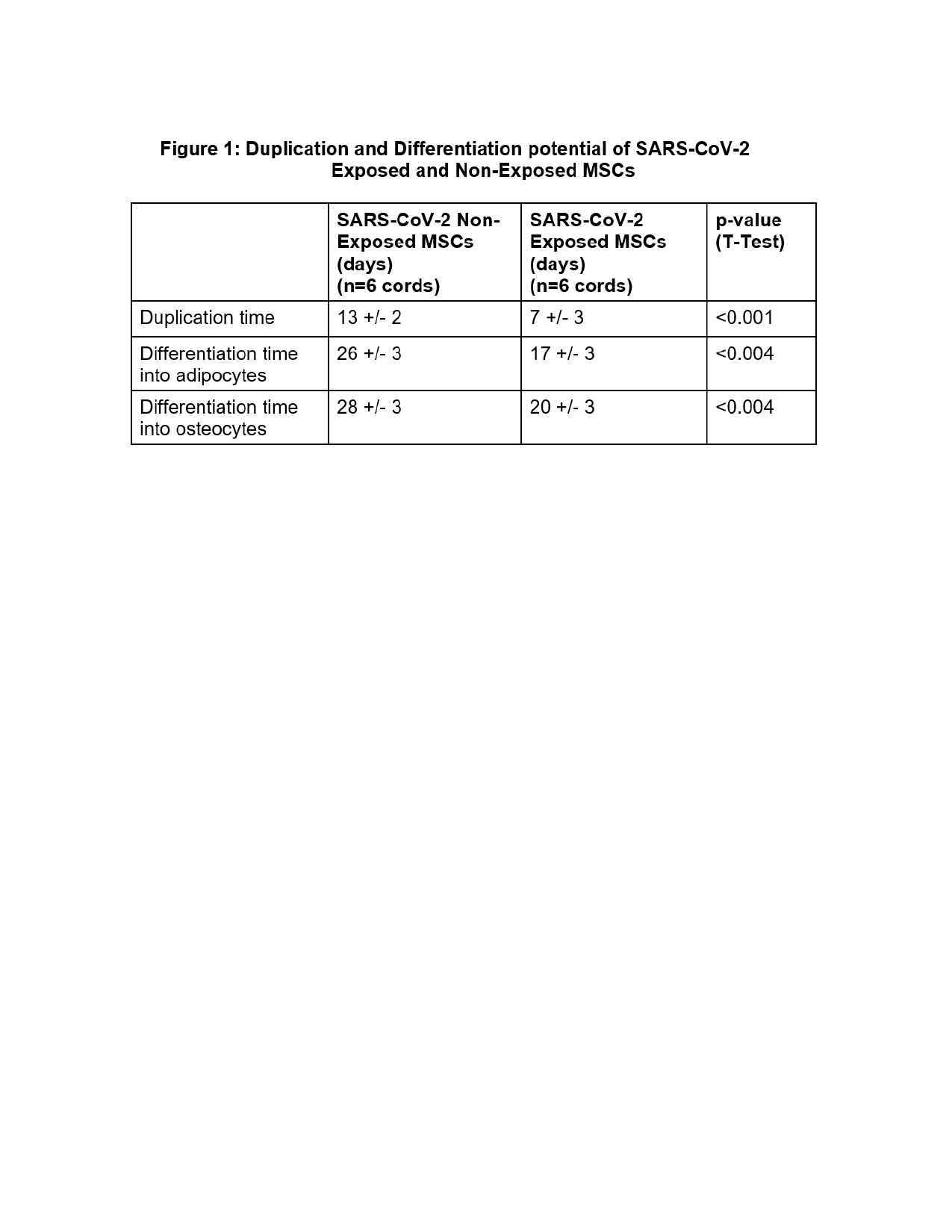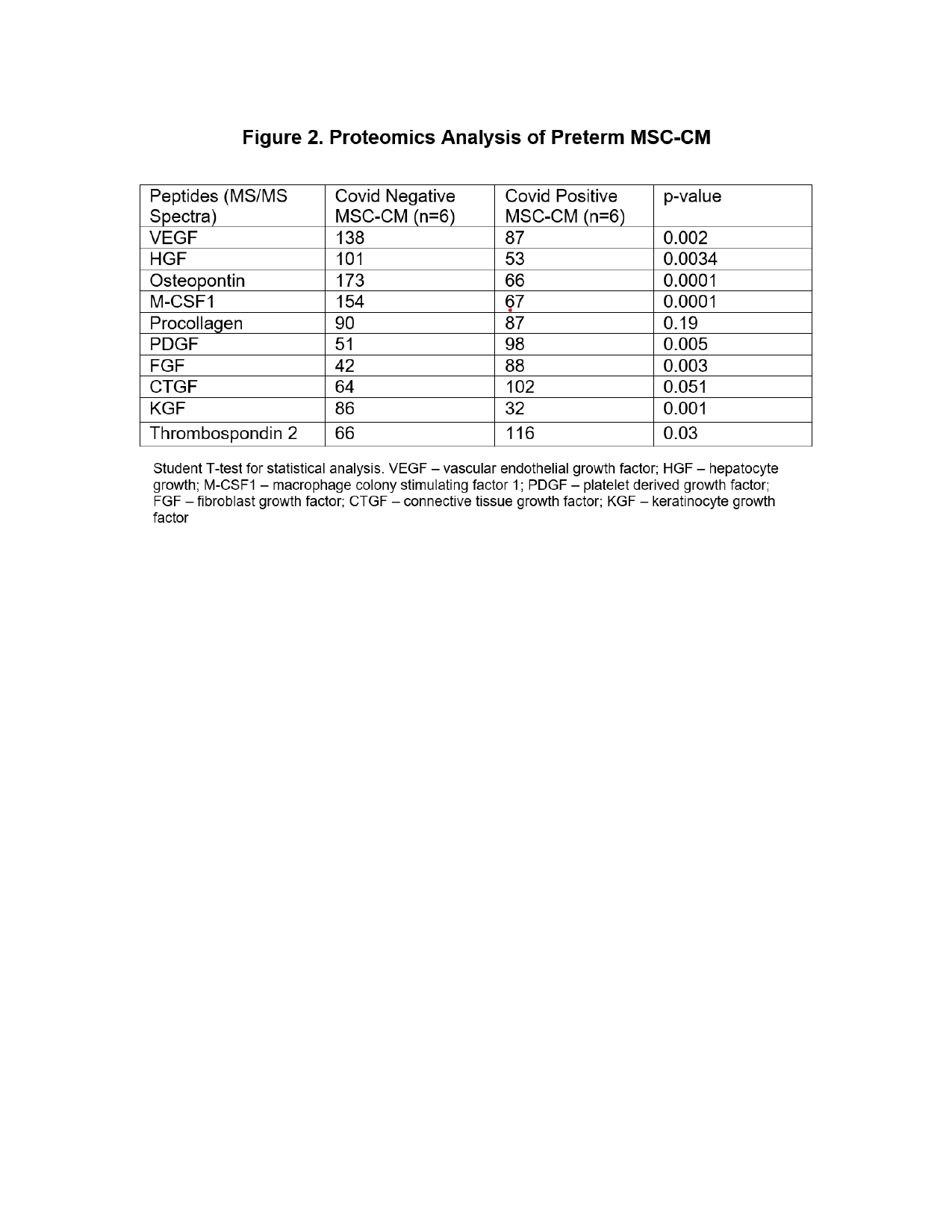Neonatal Infectious Diseases/Immunology
Neonatal Infectious Diseases/Immunology 5
442 - Biologic Potential of Human Preterm Umbilical Cord Derived Mesenchymal Stem Cells Exposed to COVID-19
Monday, May 1, 2023
9:30 AM - 11:30 AM ET
Poster Number: 442
Publication Number: 442.431
Publication Number: 442.431
Shruthi Janardhan, University of California, Irvine, School of Medicine, Orange, CA, United States; Fayez Bany-Mohammed, University of California, Irvine, School of Medicine, Orange, CA, United States; Cherry Uy, University of California, Irvine, School of Medicine, Orange, CA, United States; Muhammad Aslam, University of California, Irvine, School of Medicine, Orange, CA, United States

Shruthi Janardhan, MD
Fellow, Neonatal-Perinatal Medicine
University of California, Irvine, School of Medicine
Orange, California, United States
Presenting Author(s)
Background: COVID-19 caused by the SARS-CoV-2 virus has led to a pandemic with oxidative stress, inflammatory cascade, and cytokine storm as main causes of morbidity and mortality. Covid-19 infection in pregnant women varies from asymptomatic to severe disease. Bronchopulmonary dysplasia (BPD) is a chronic debilitating lung disease of preterm infants leading to arrested alveolar development. Our published work has shown protection of BPD by mesenchymal stem cells (MSCs). This study evaluated biologic efficacy of MSCs harvested from umbilical cords of preterm infants with and without Covid-19 infection at delivery.
Objective: We hypothesized that SARS-CoV-2 infection at delivery will lead to a decline in biologic efficacy of preterm umbilical cord derived MSCs. Our aims included generation of MSCs from preterm umbilical cords, assessment of their growth and differential potential, and generation of MSC-conditioned medium (MSC-CM) to assess for secreted biomarkers via proteomics analysis. We also assessed endogenous MSC mitochondrial bioenergetics, proliferation, and survival analysis.
Design/Methods: The study was approved by the Institutional IRB. The umbilical cords at preterm delivery (24-28 weeks’ gestational age) were collected from 6 SARS-CoV-2 positive mothers and 6 SARS-CoV-2 negative mothers (control) after informed consent. The umbilical cord Wharton’s jelly plastic adherent cells harvested, propagated, and immunodepleted to obtain MSCs. MSC duplication and differentiation time assessed between two groups. MSC-CM generated and proteomics analysis done to determine secreted biomarkers. Endogenous MSC mitochondrial bioenergetics, proliferation, and survival analysis assessed using commercial kits and published protocols.
Results: SARS-CoV-2 positive MSCs had much shorter duplication time and differentiation time (adipocytes and osteocytes) when compared with negative controls (Figure 1). Proteomics analysis identified significantly lower lung injury preventive biomarkers concentration in SARS-CoV-2 positive MSC-CM compared to control MSC-CM (Figure 2). SARS-CoV-2 MSCs showed mitochondrial dysfunction with increased oxidative stress when compared with control MSCs. Hyperoxia-exposed SARS-CoV-2 MSCs showed decreased mitophagy compared to control MSCs. Apoptosis assay showed significantly more apoptosis in SARS-CoV-2 positive MSCs compared to control MSCs.
Conclusion(s): SARS-CoV-2 infection at the time of delivery alters the biologic potential of human preterm umbilical cord derived MSCs with lack of protected biomarkers and increased oxidative stress with mitochondrial dysfunction.


